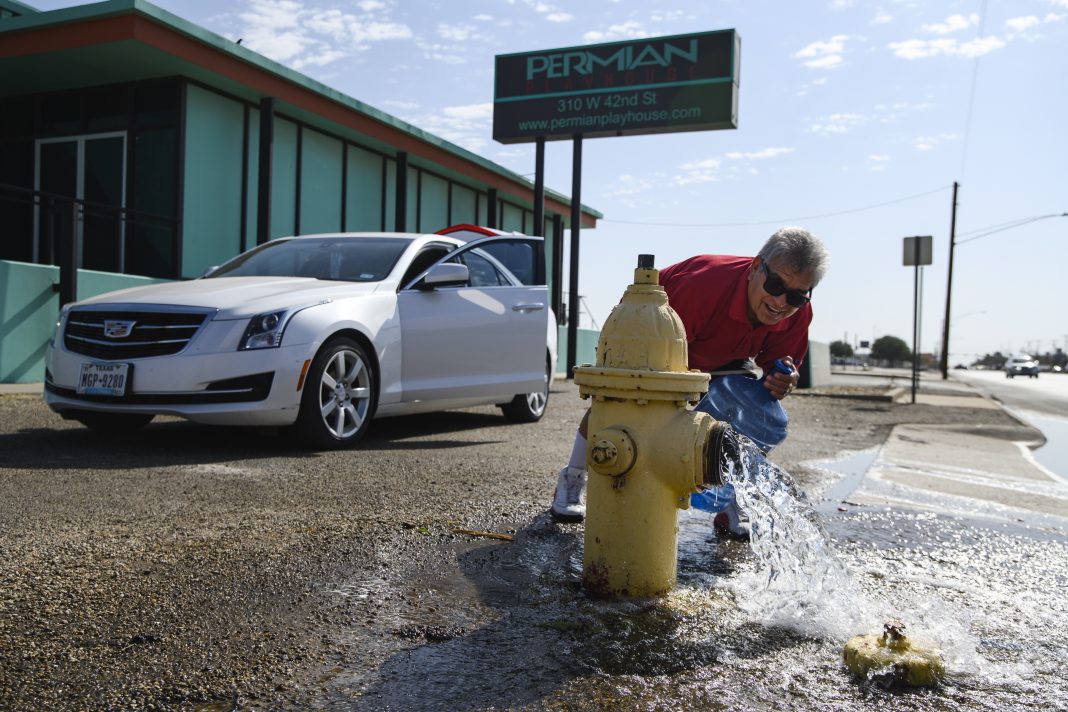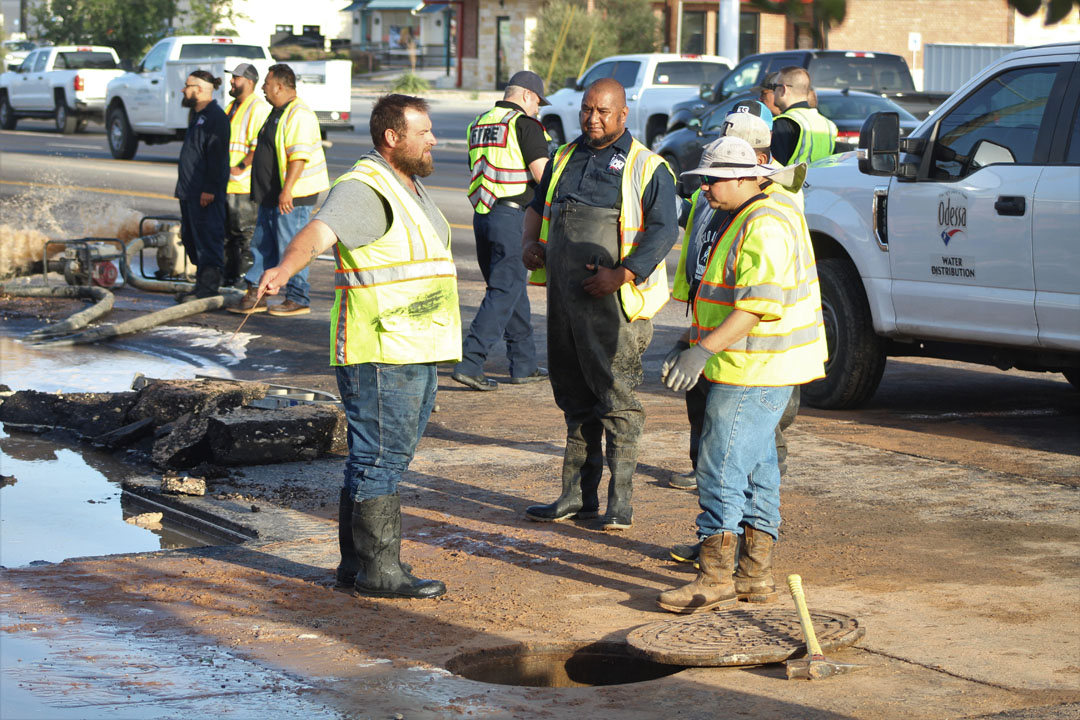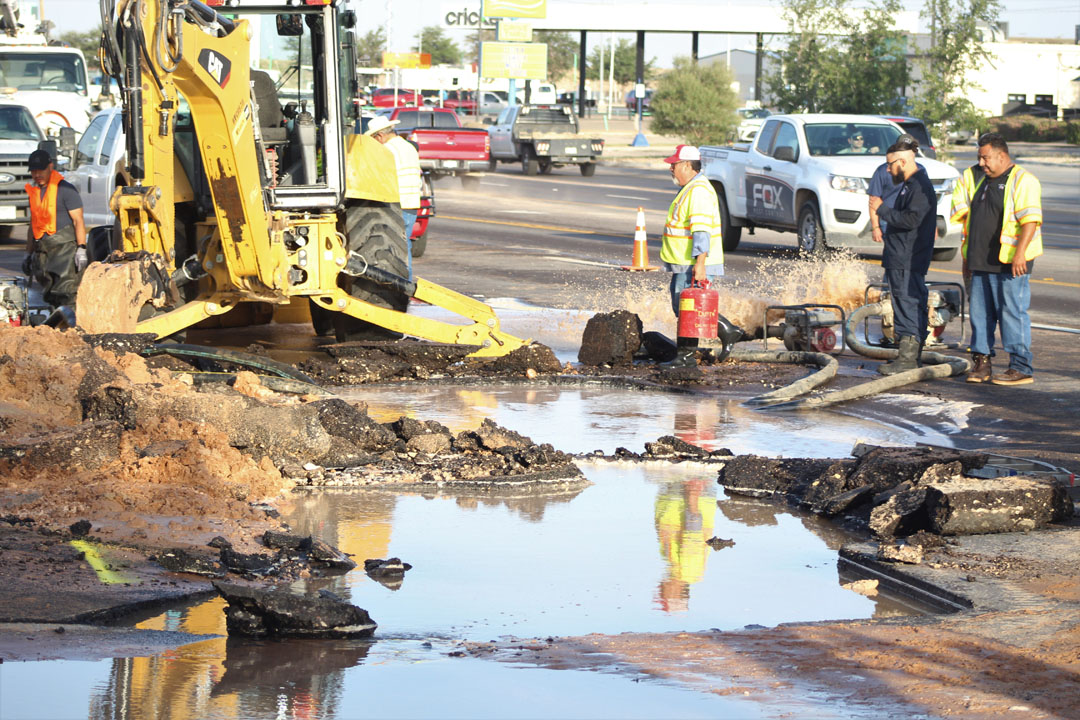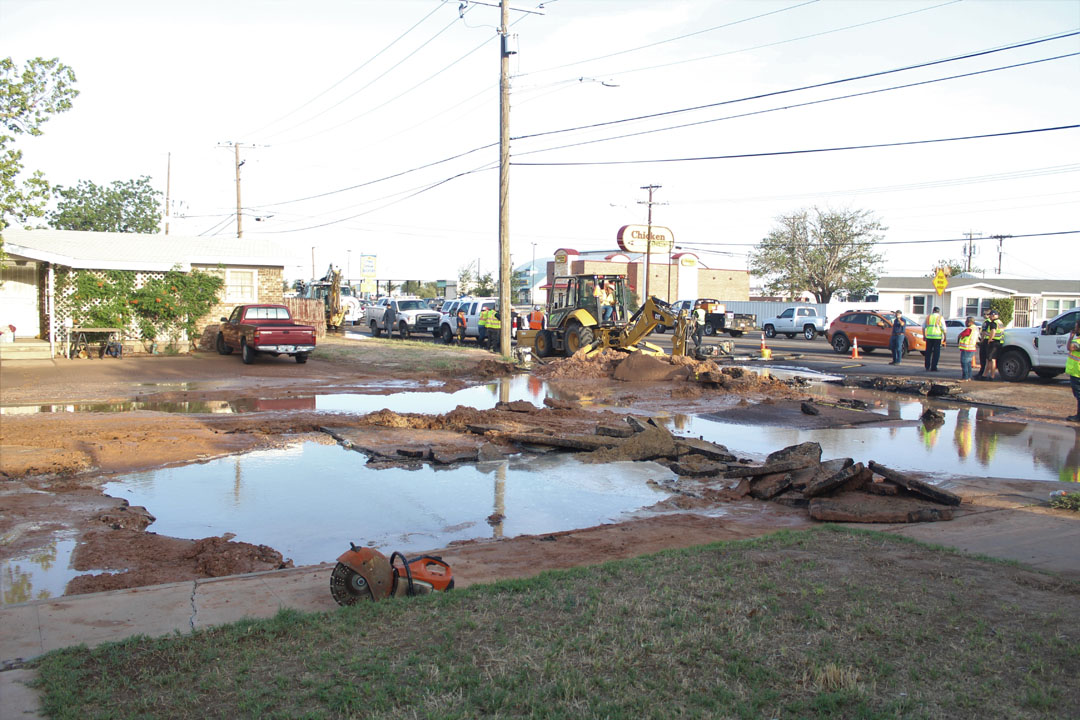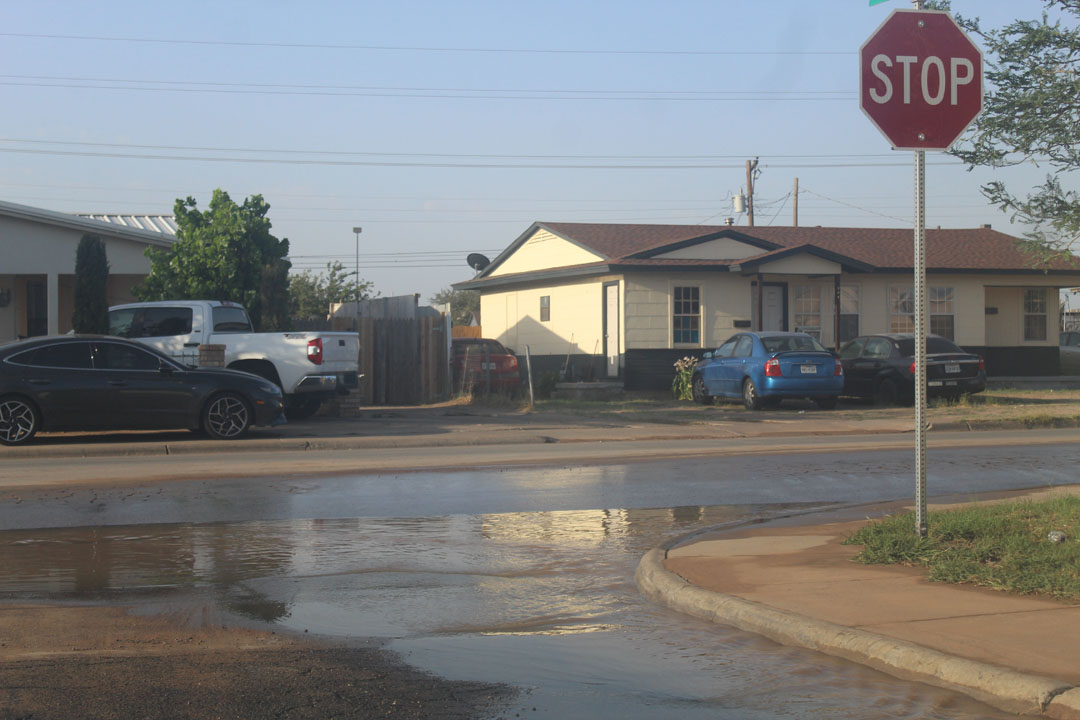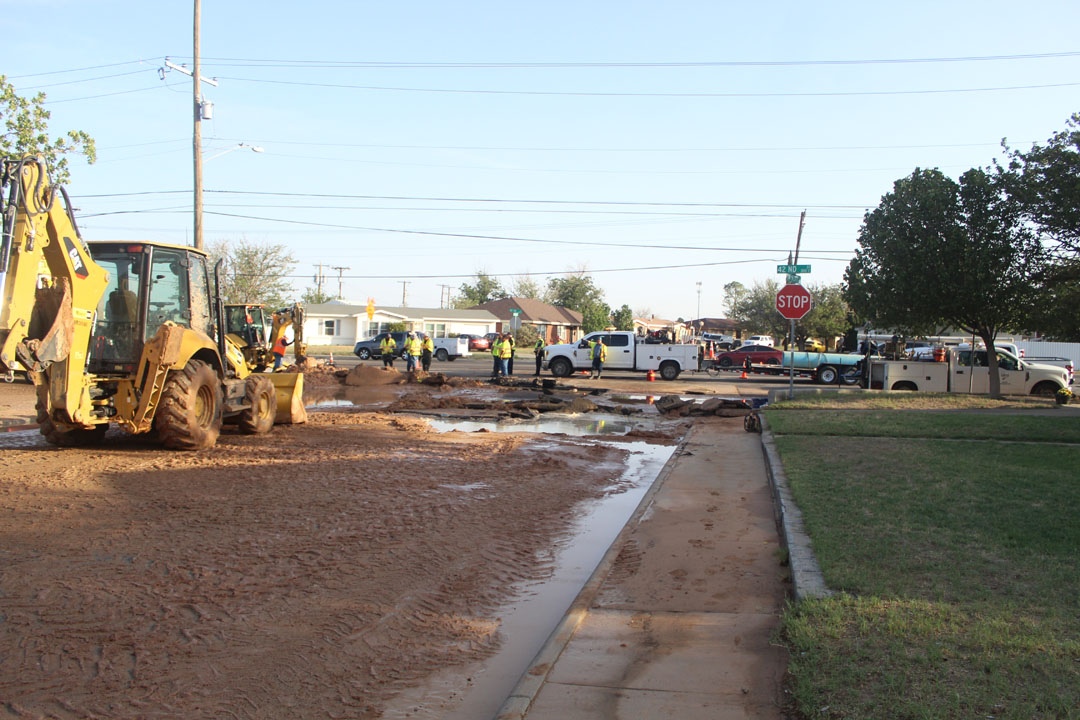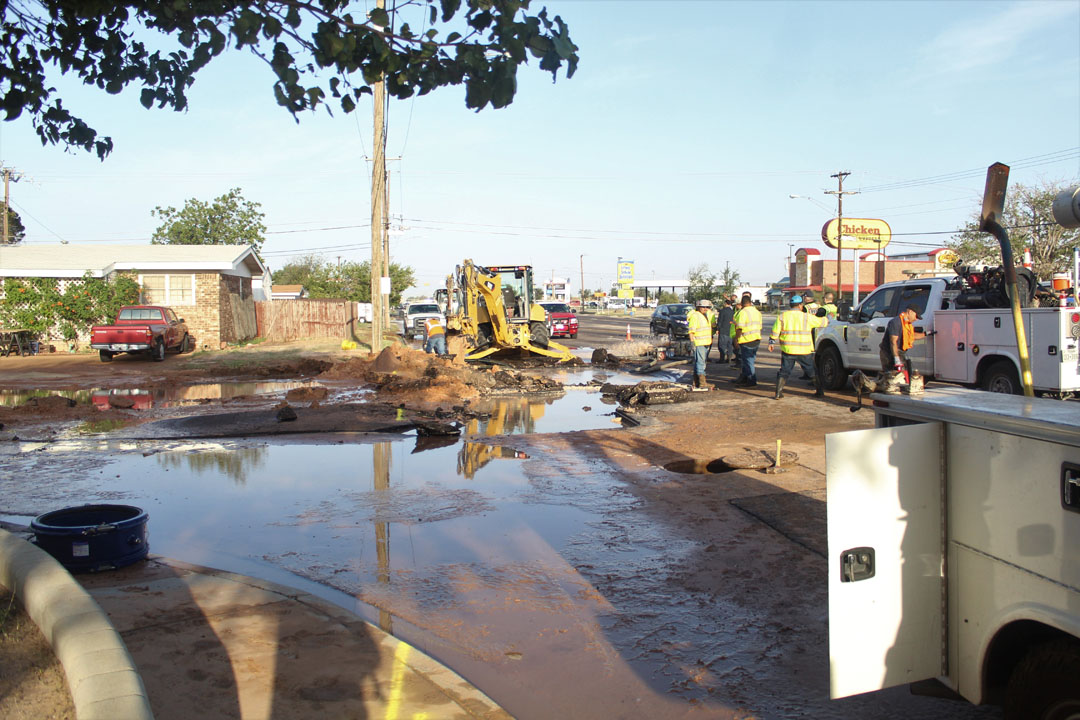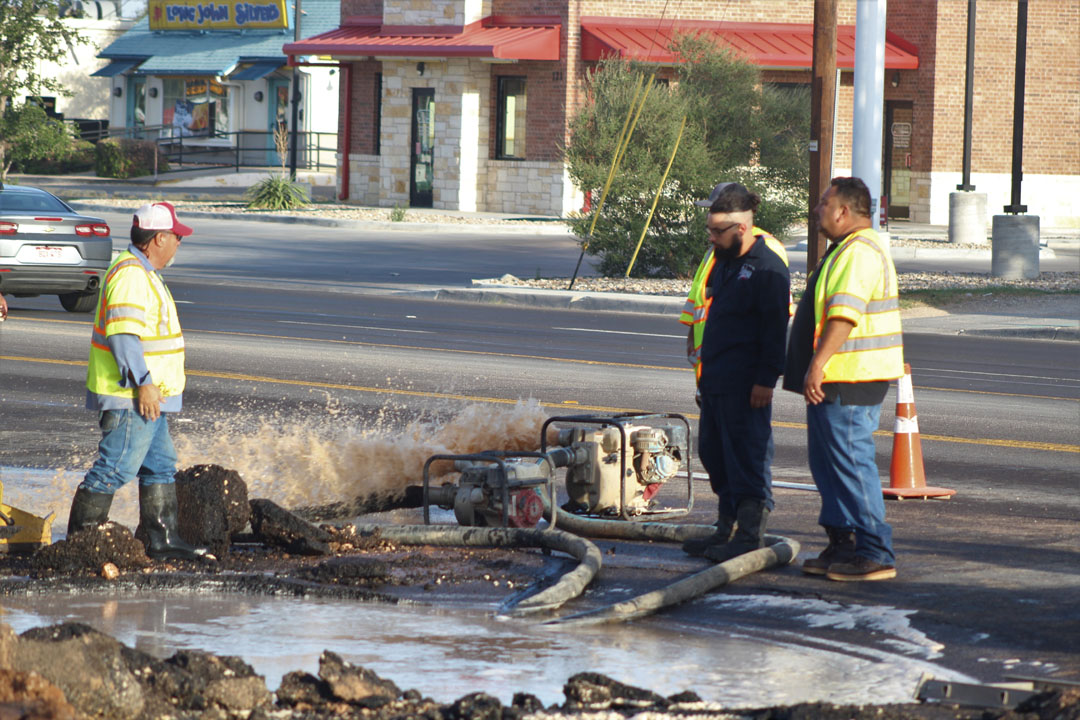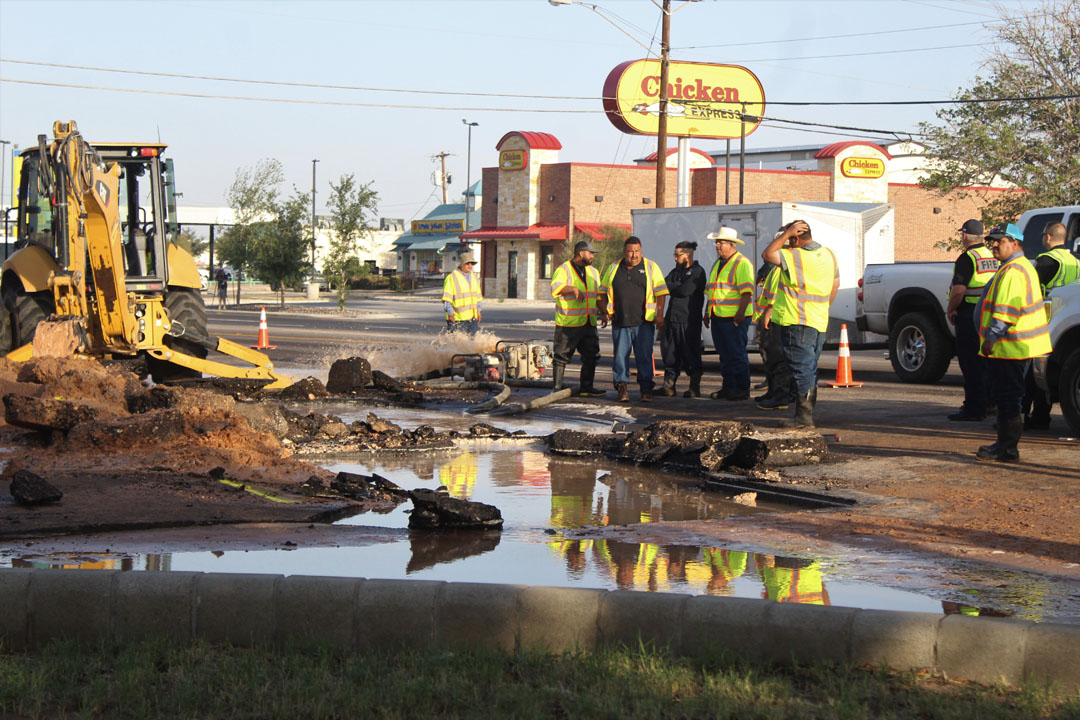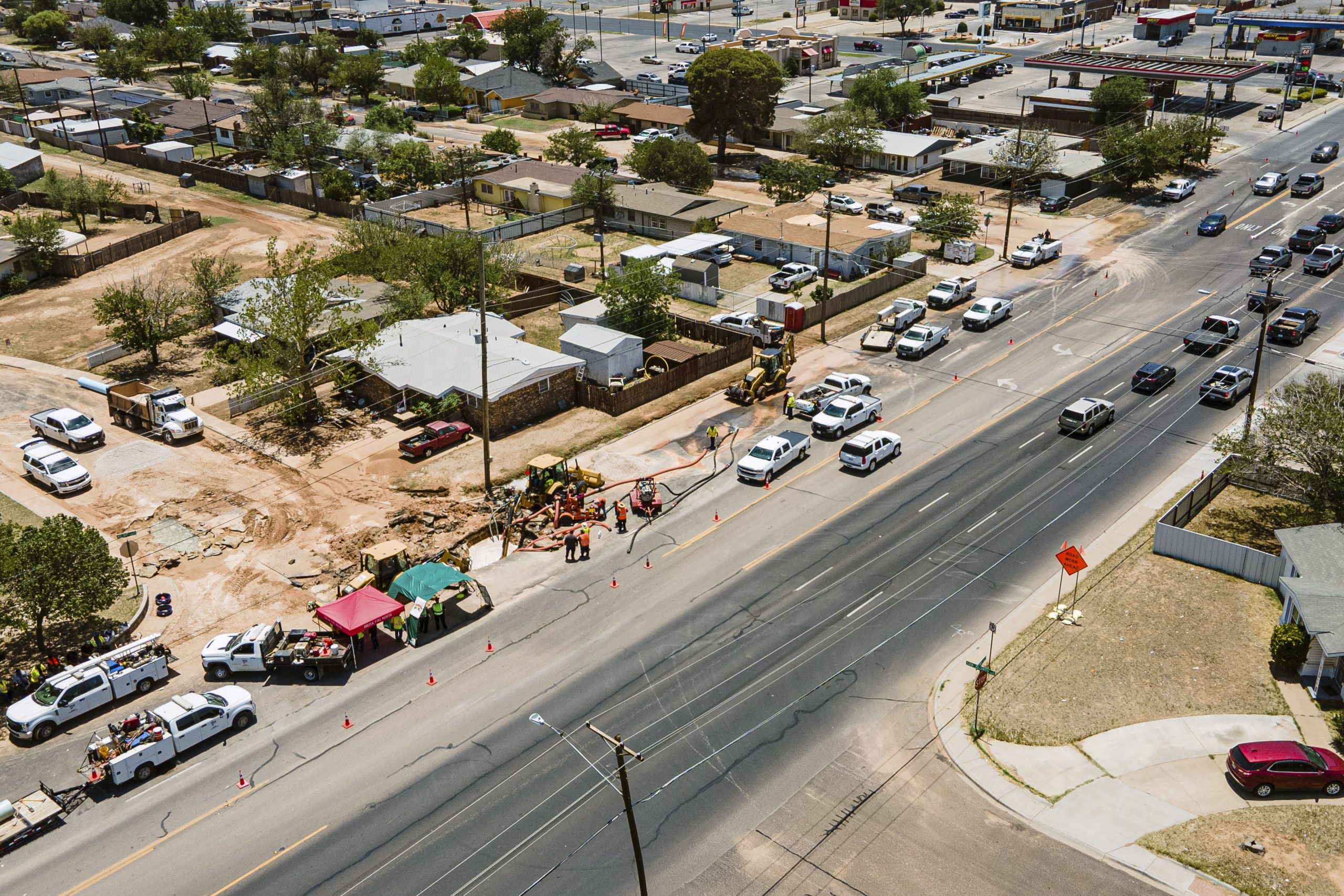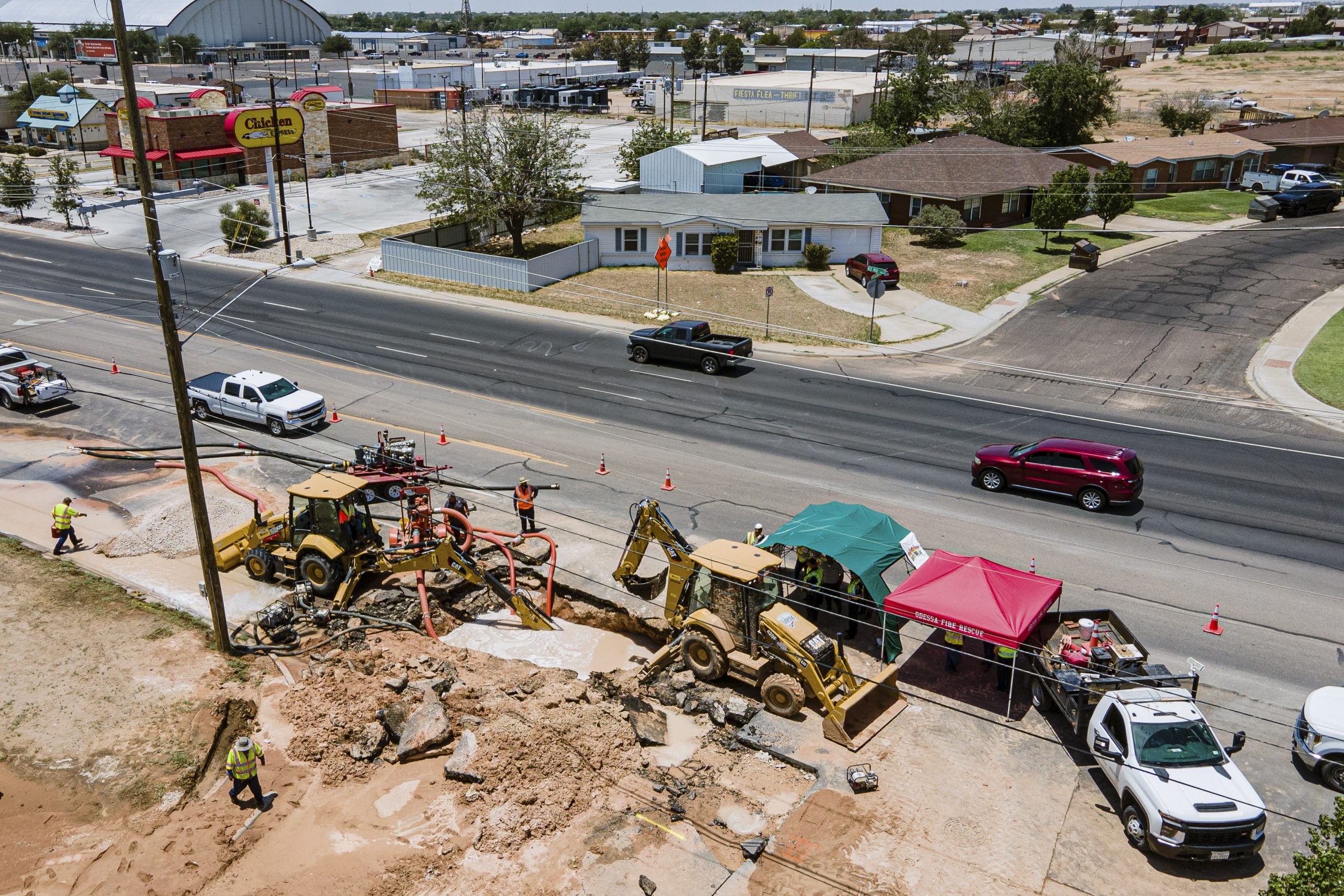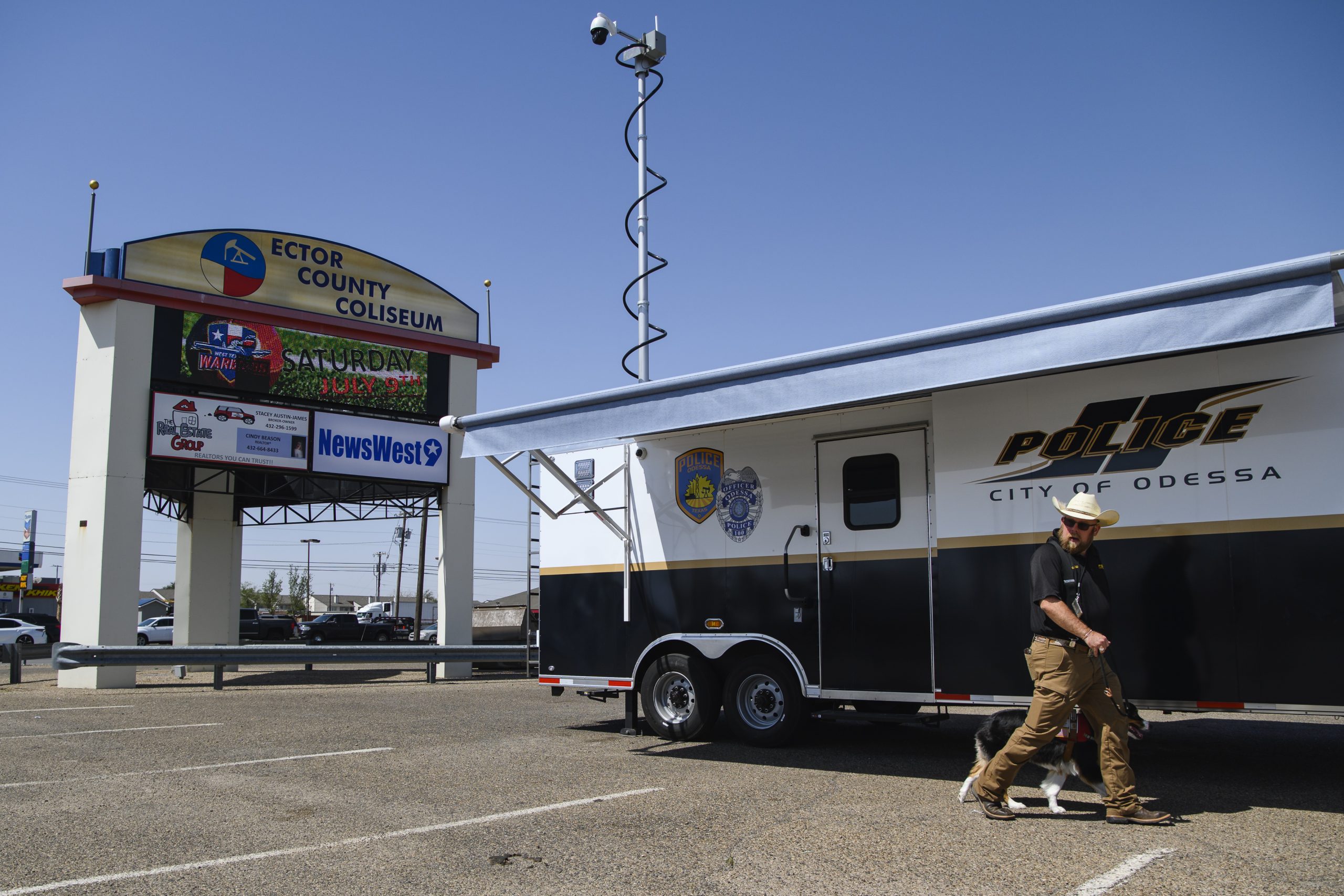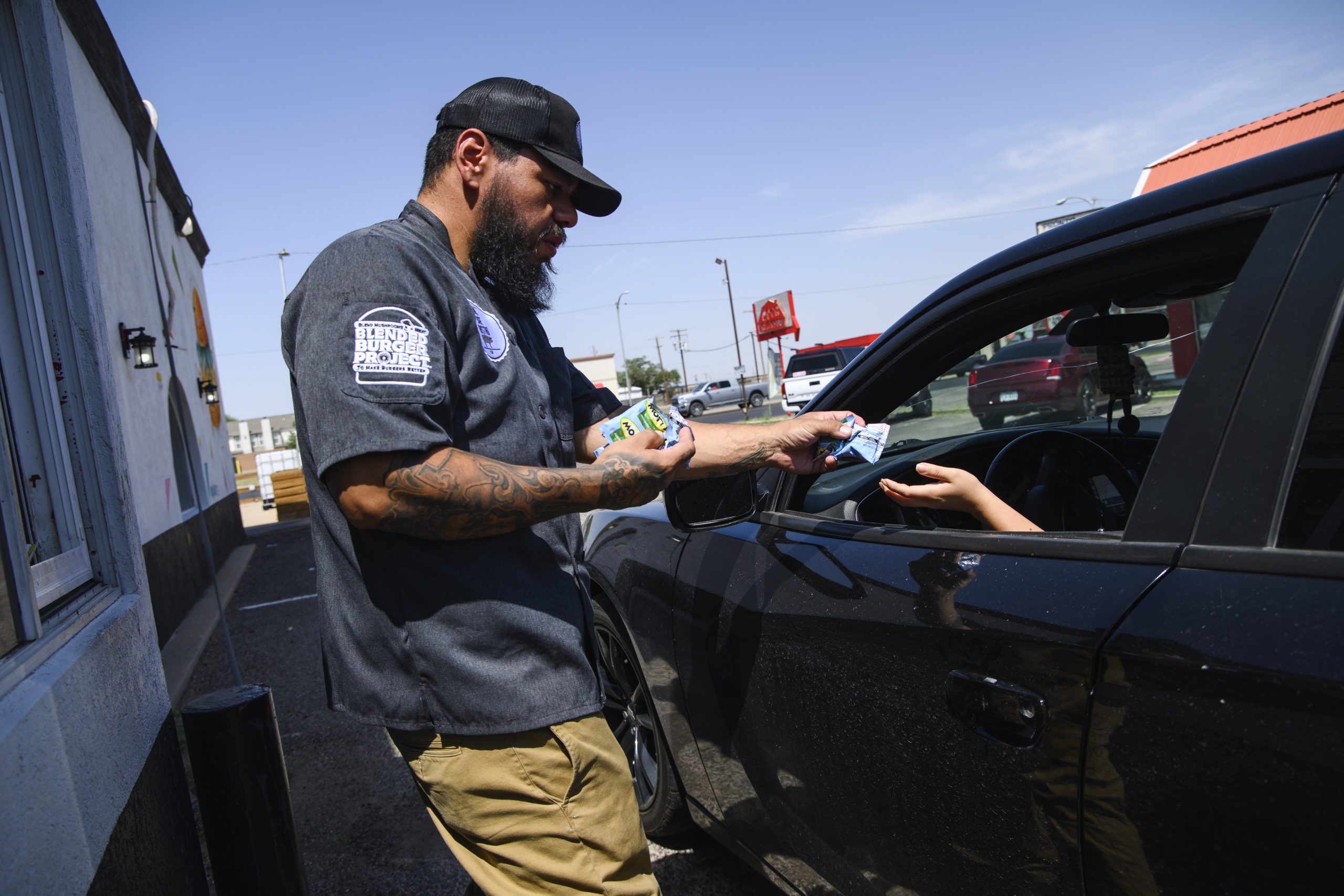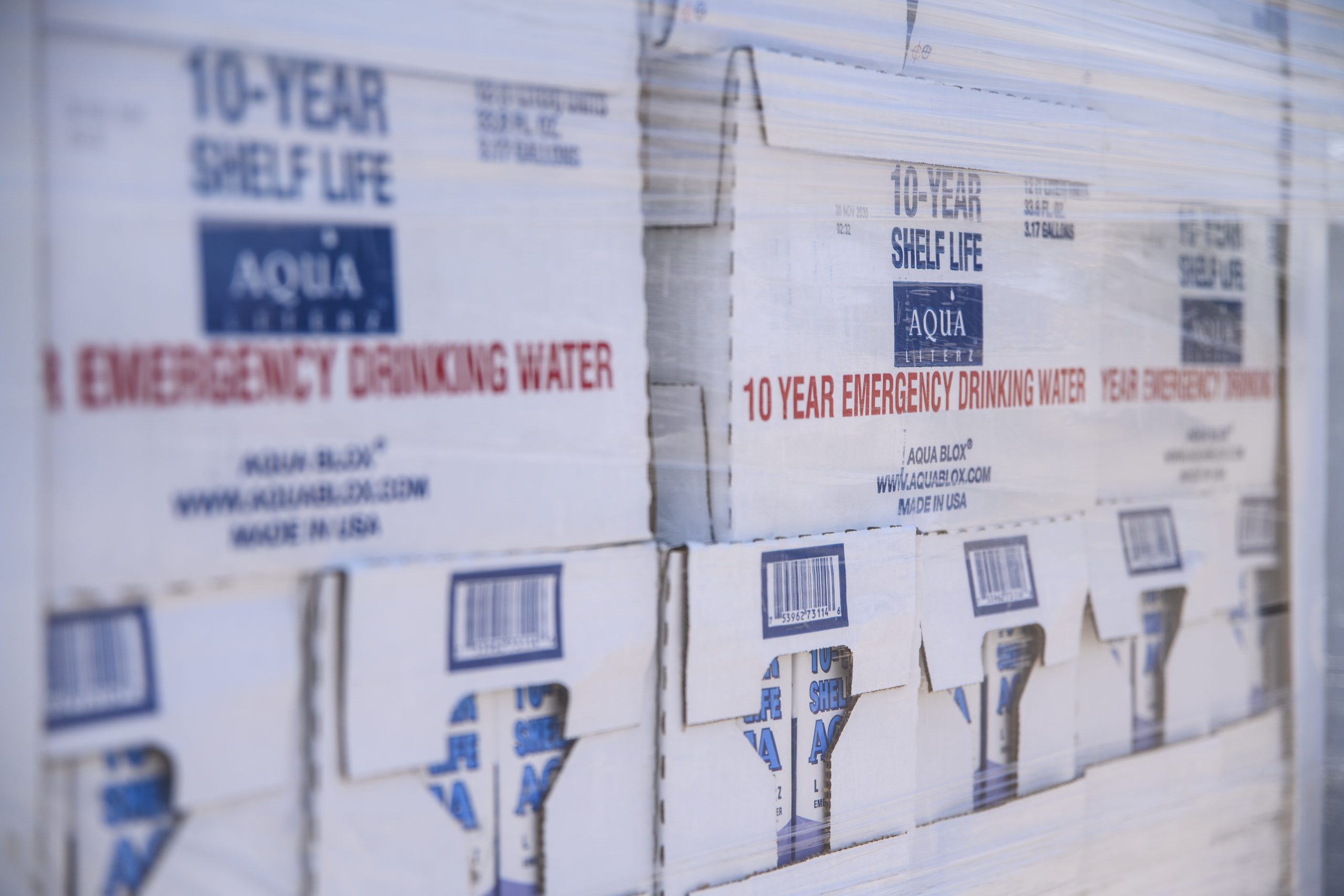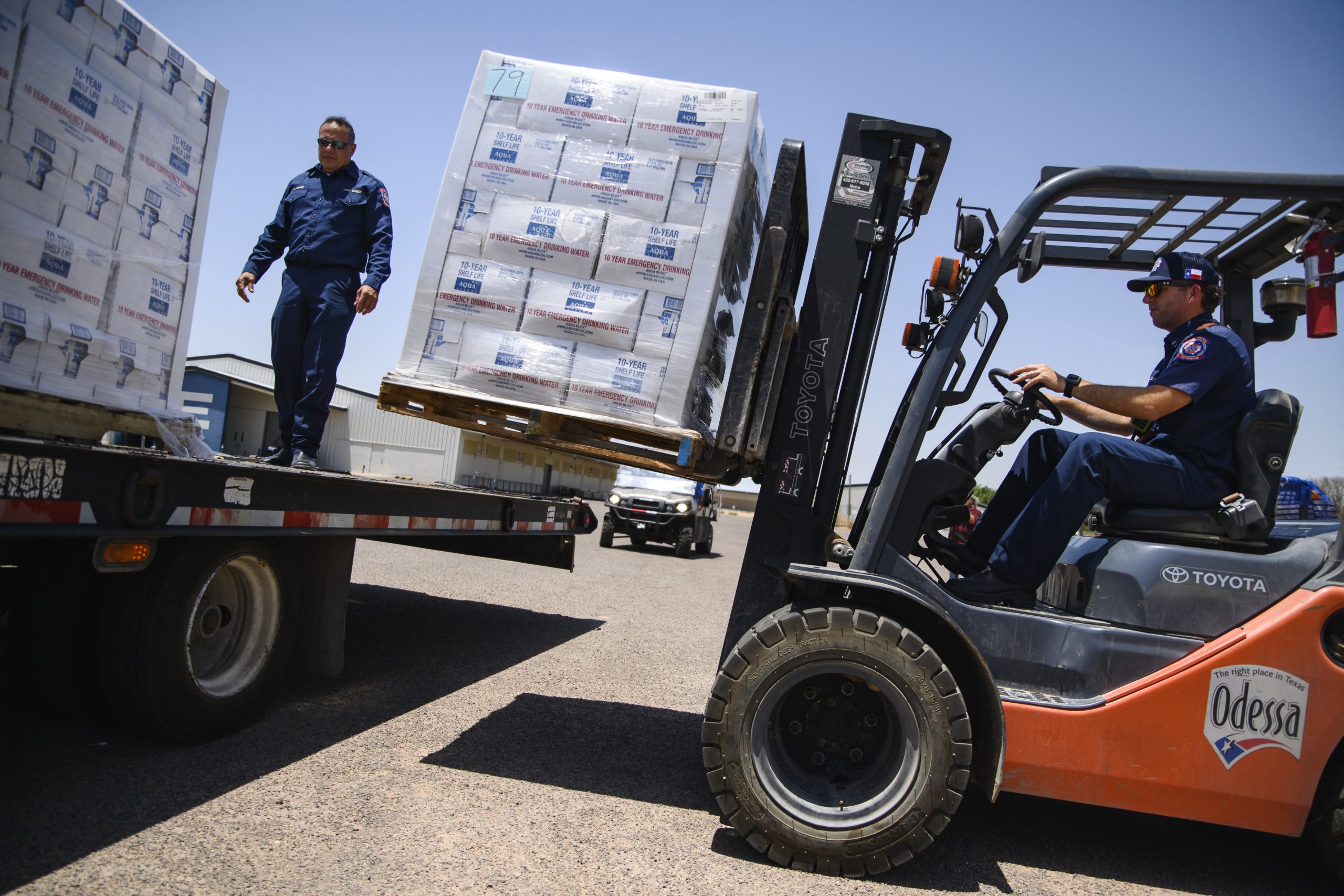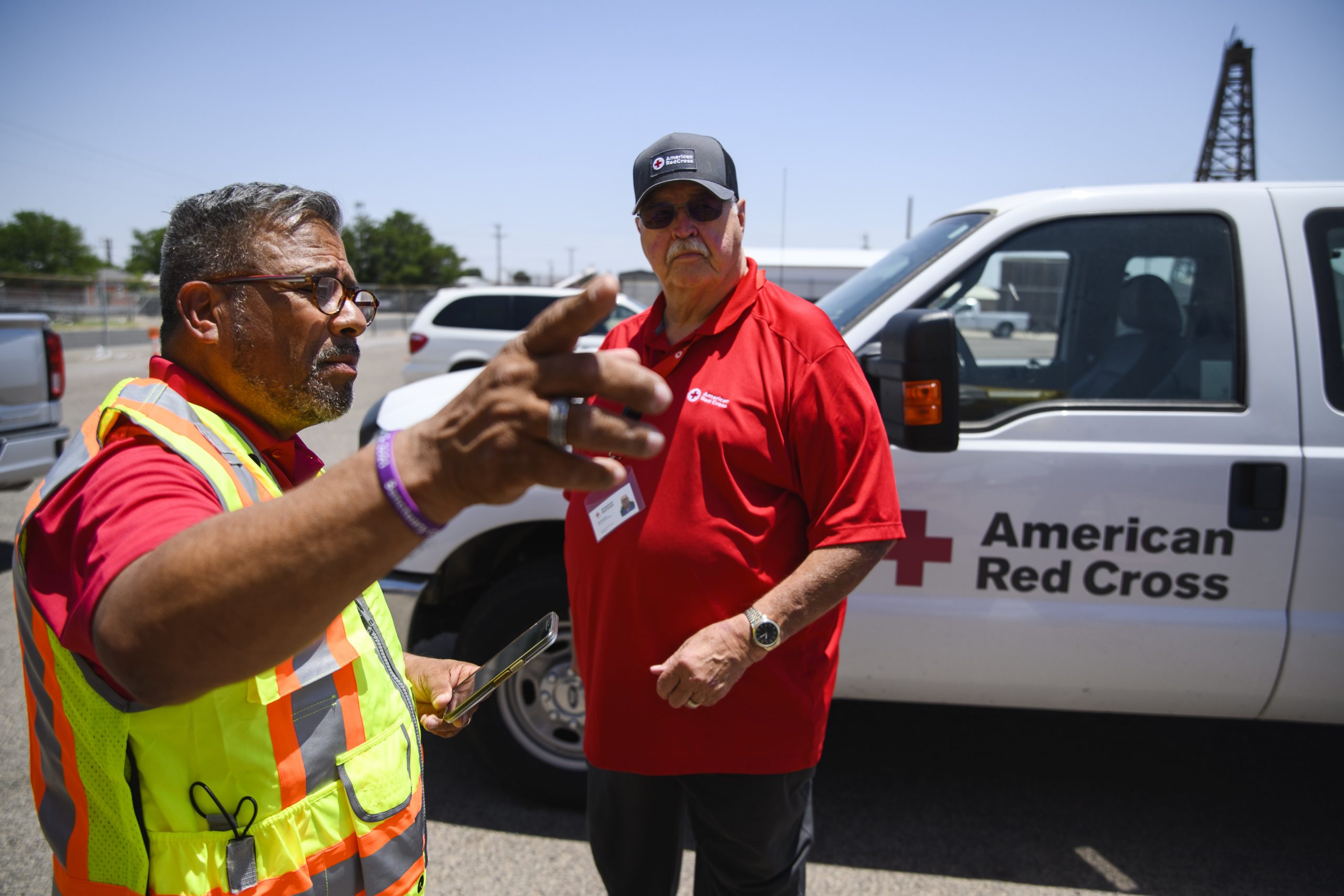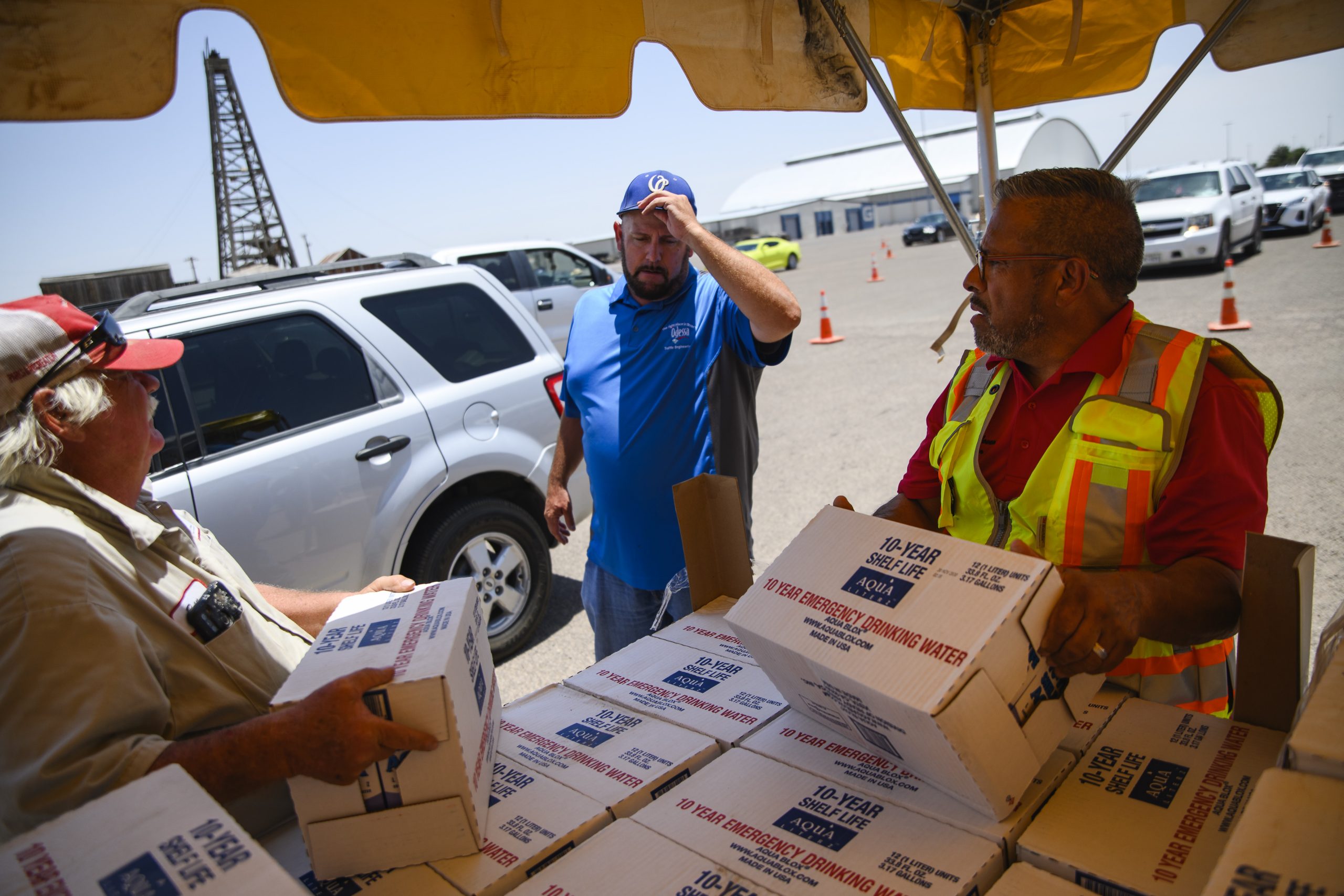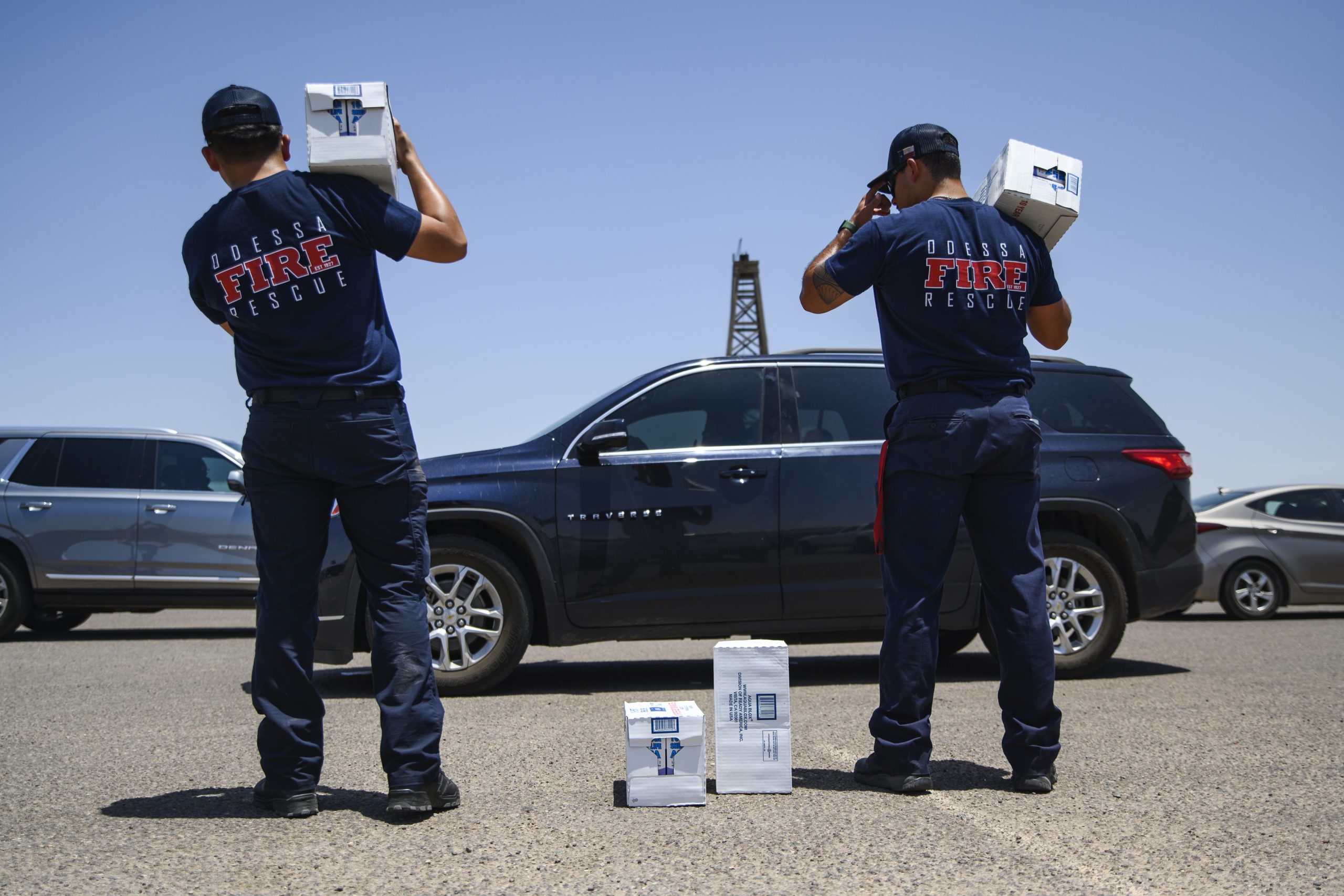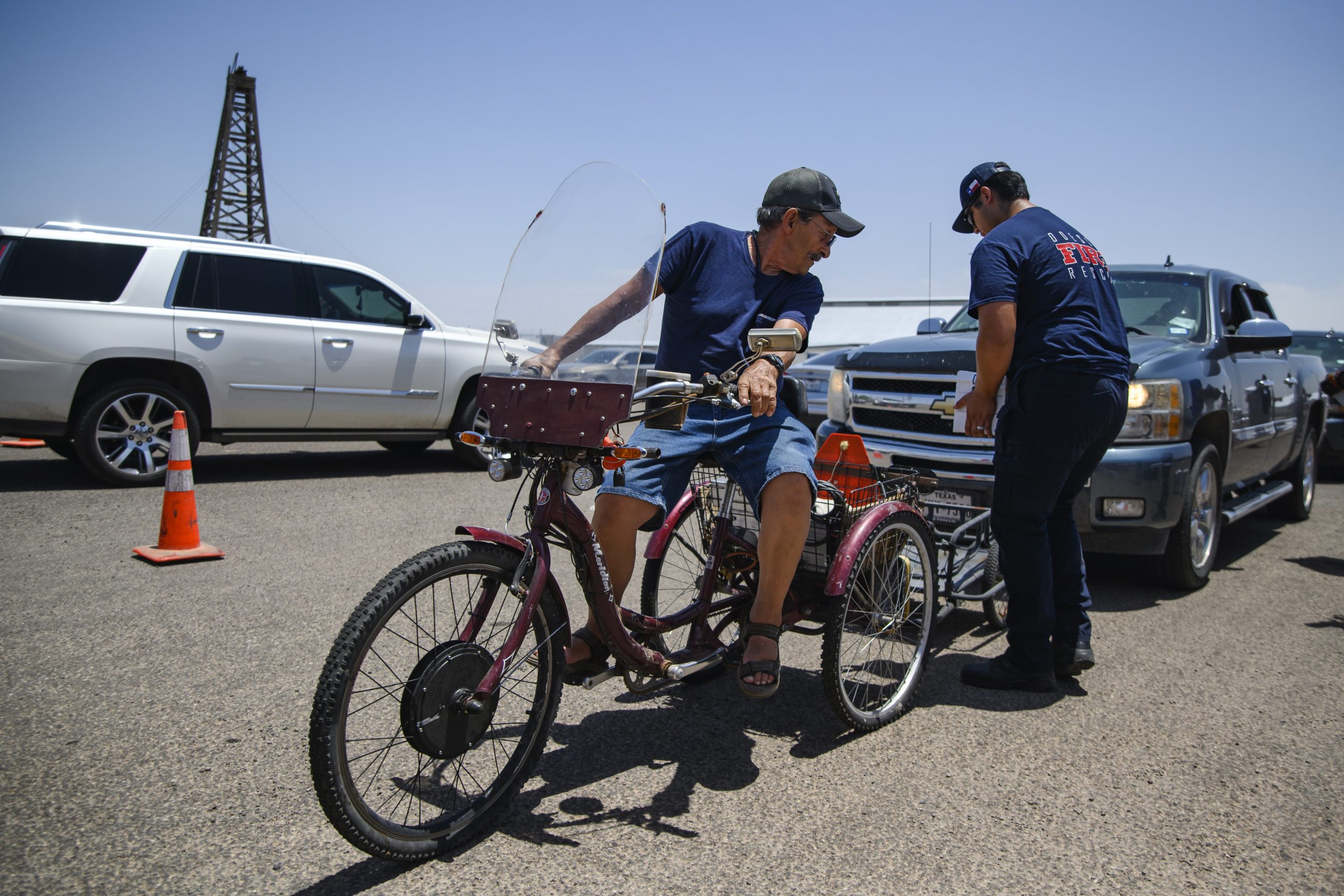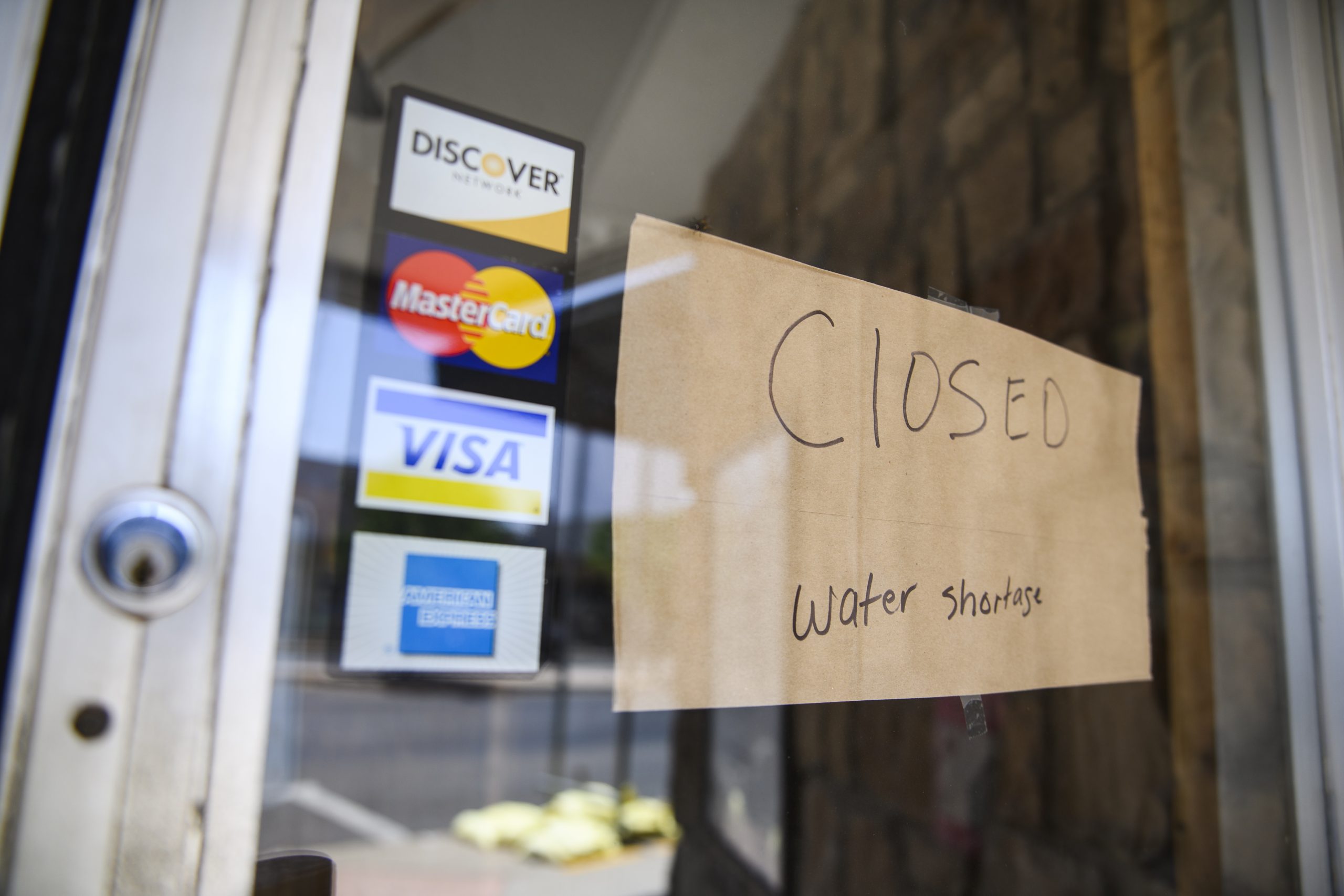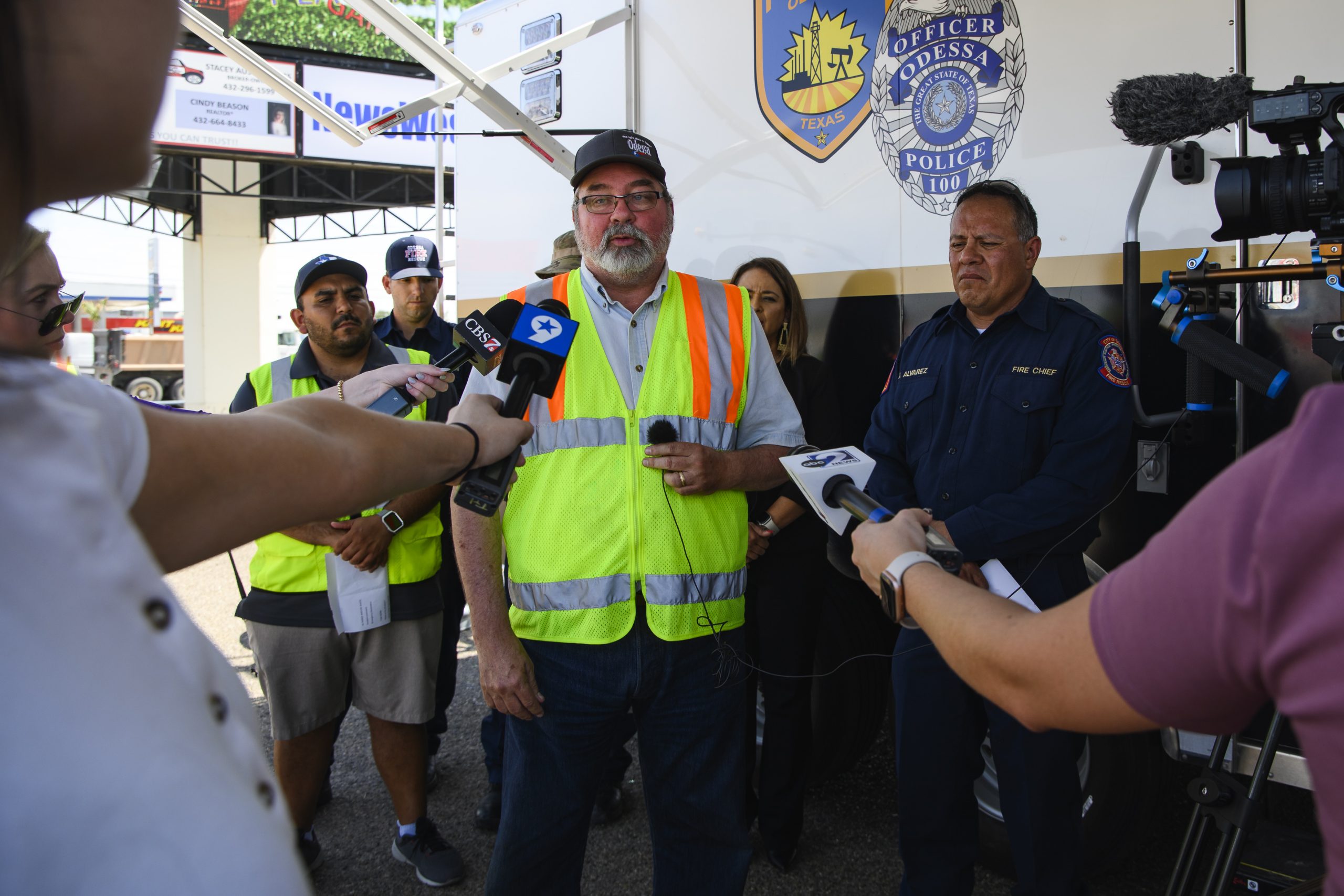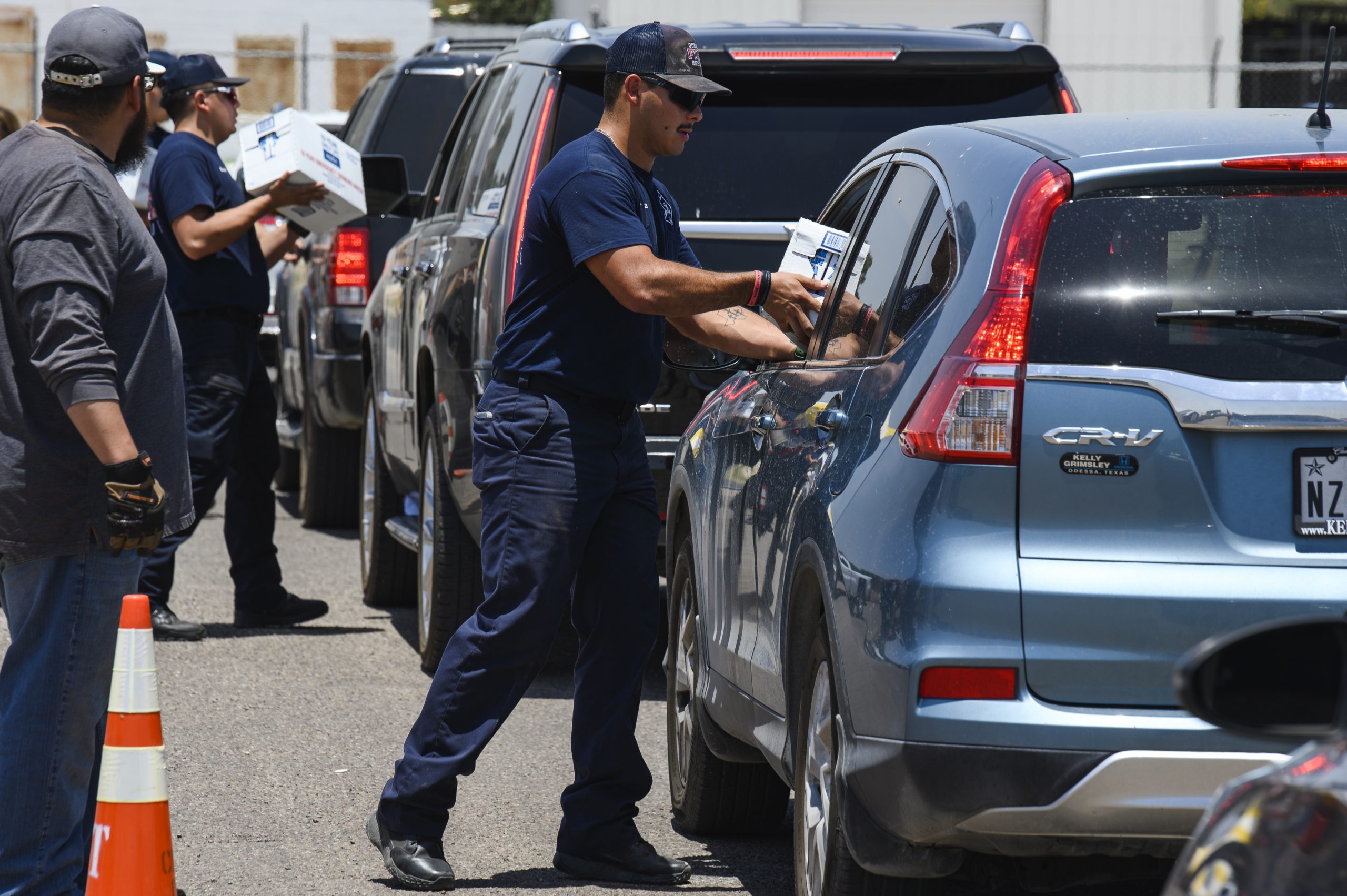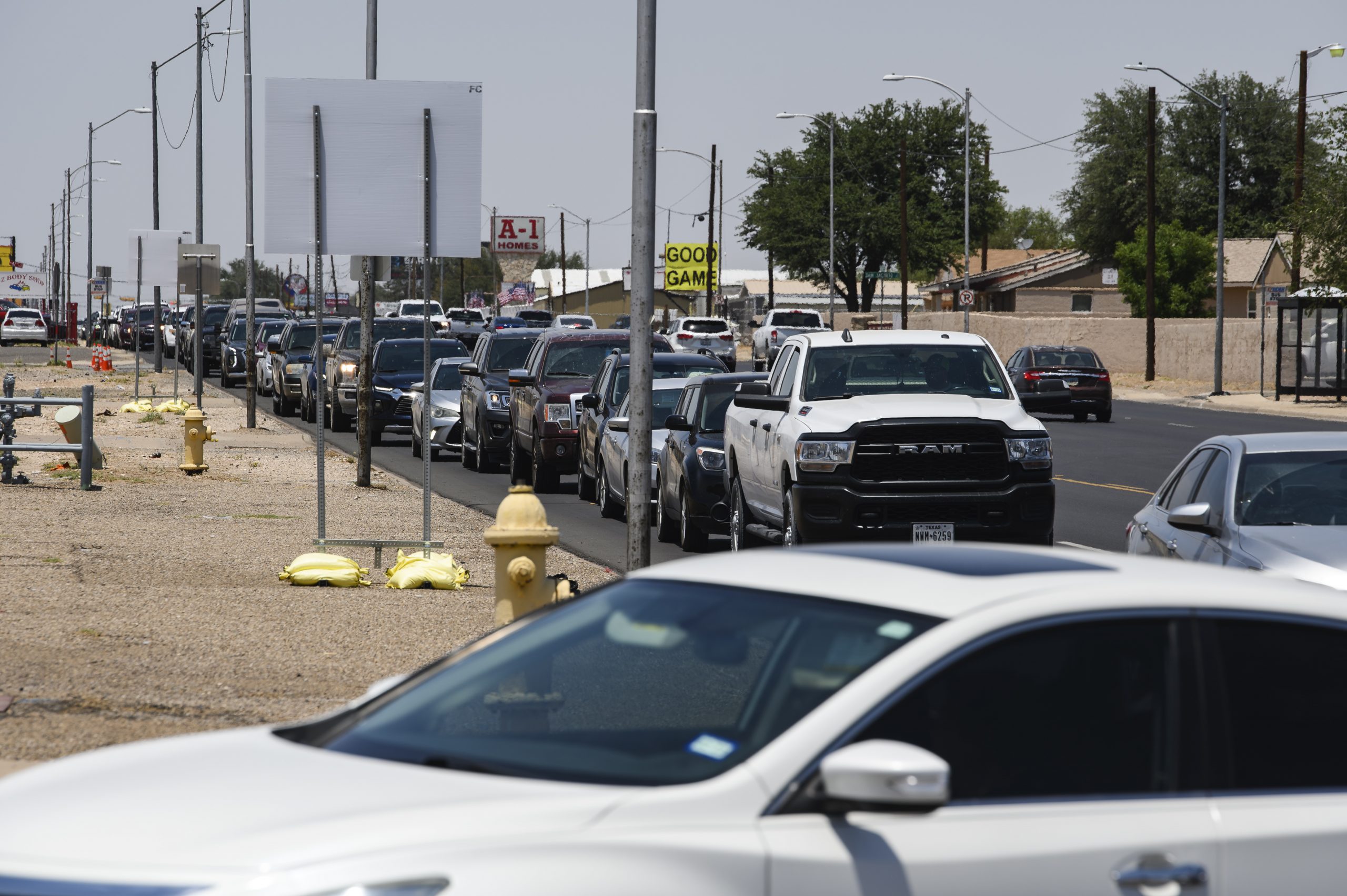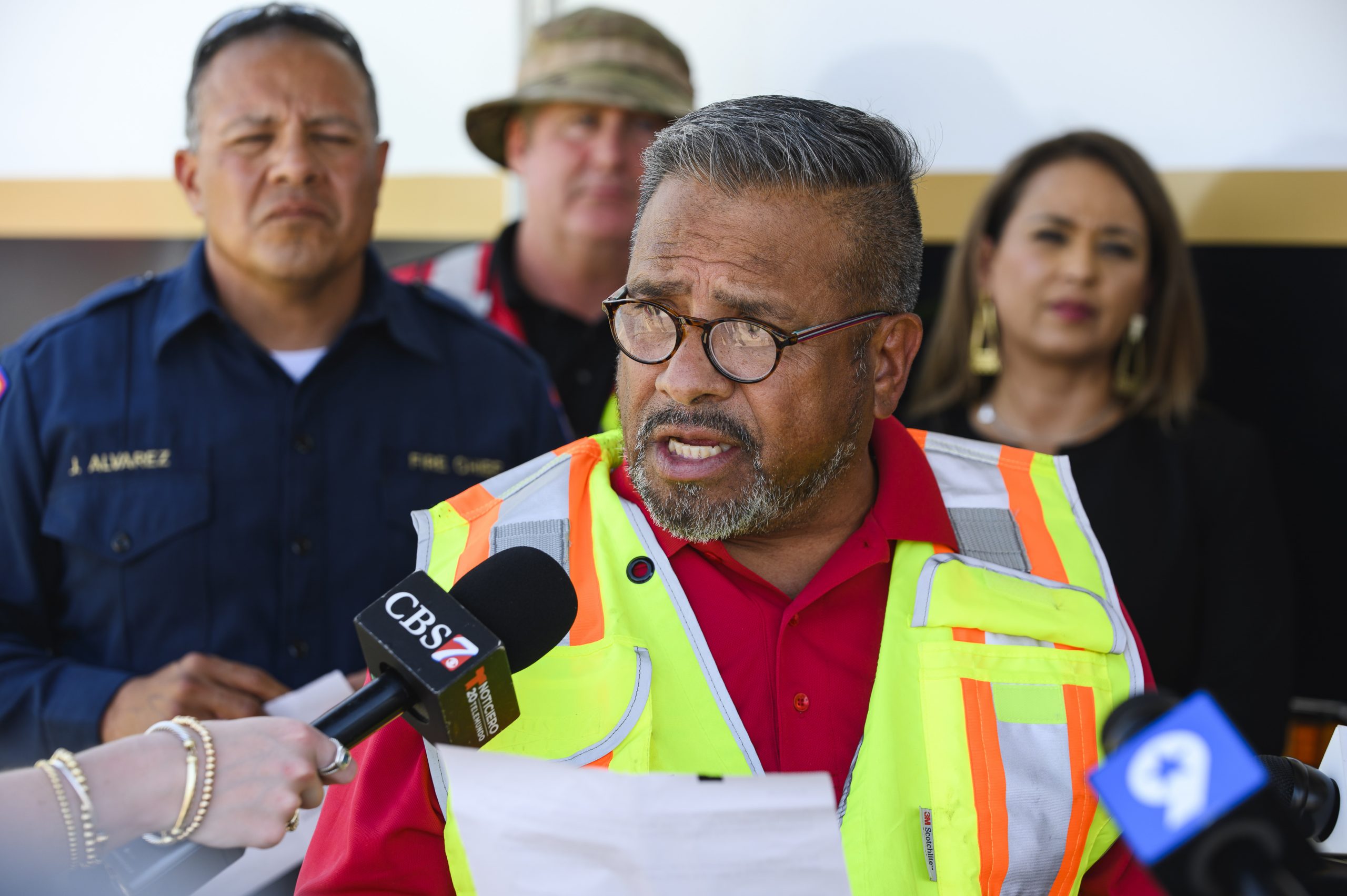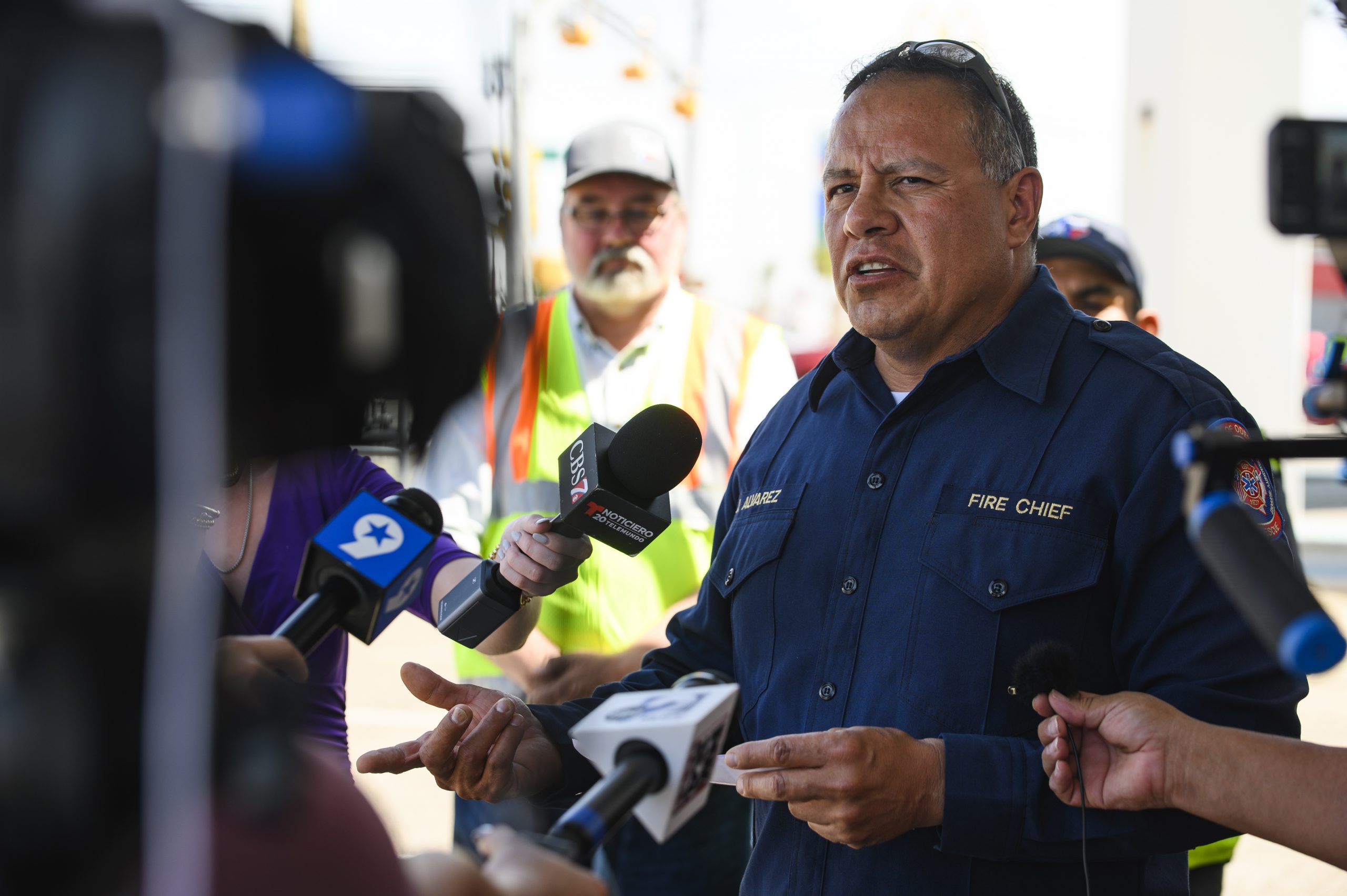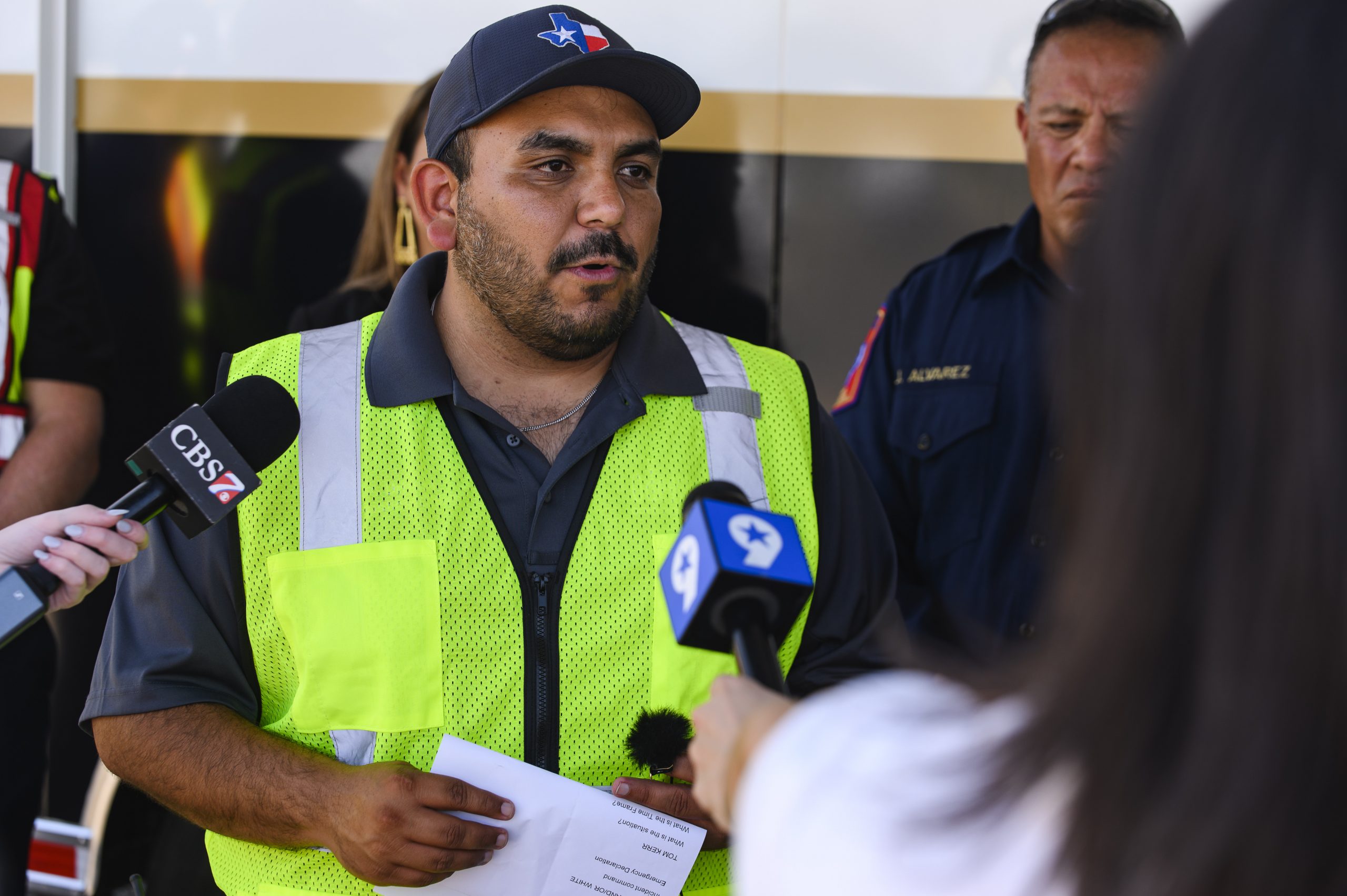City of Odessa officials anticipate fixing the water line break that has created a daylong headache for many Odessans by 8 p.m. Tuesday, but it’ll take at least 10-12 hours before people will be able to flush their toilets again and at least another 12 hours after that before they can drink the water.
City utility workers were informed of a water line break around 6 p.m. Monday and due to the loss of pressure, they were forced to take the city’s water plant offline, which prompted a boil alert to be issued for all of Ector County around 1 a.m. Tuesday – all this during 100 plus degree days.
Workers discovered a major, 24-inch water line had broken at 42nd and San Jacinto streets and Utilities Director Tom Kerr said his crews spent the majority of Tuesday evacuating the water around the pipes so they could get to it and repair it.
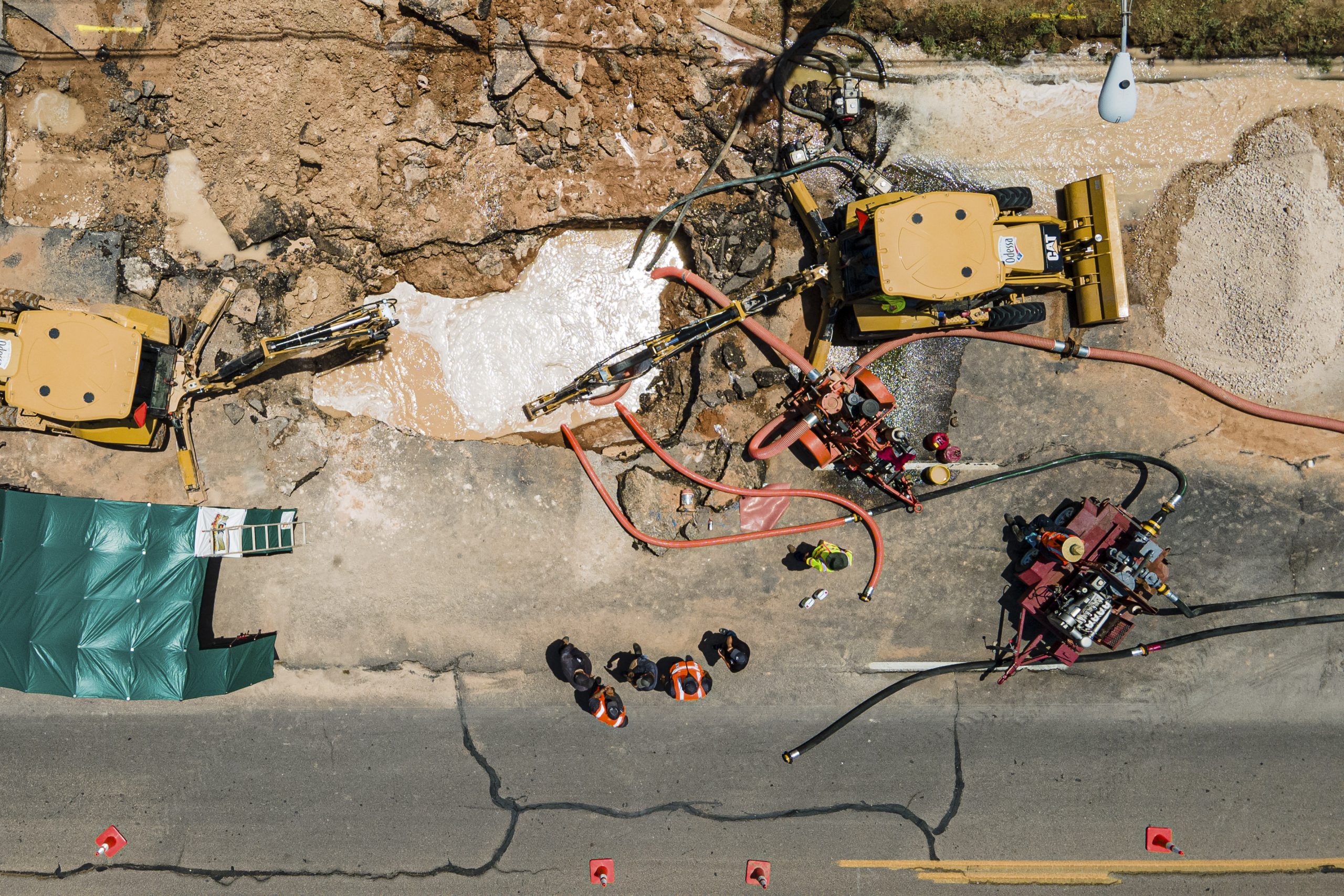
“At that point, we will need to recommission the system and restart the plant and start loading the pipeline system and getting people back in water. We anticipate that may take 10 to 12 hours as we have never done this before with our system like this,” Kerr said.
When the system is reloaded, Kerr said they’ll be moving “very deliberately.”
“We’re not going to proceed very quickly…we don’t want to go slow, but we’ve got to be careful so that we reduce the risk of other breaks occurring,” Kerr said.
Residents who live in lower parts of the county and city will receive their water first, Kerr said.
The boil alert will continue to be in effect for 24 hours after the system is up and running again, Kerr said. The city will be conducting state-required tests to ensure there are no harmful bacteria and other microbes within the system.
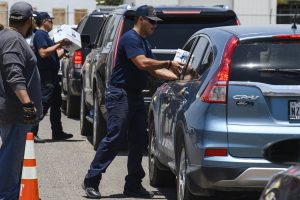
The city began distributing bottled water around 2 p.m. Tuesday at three distribution points throughout the city and will continue to do so until 7 p.m. or until the water runs out, officials said. About half of the available water was gone within 40 minutes.
Council members Mark Matta and Denise Swanner helped distribute water at McKinney Park, but water was also available at the Ector County Coliseum and West University and FM 1936. The city also delivered water to each of its seven senior centers.
The water was donated by the West Texas Food Bank, various local vendors and the Texas Department of Emergency Management.
Six 18-wheelers carrying additional water from Lowe’s, Home Depot and TDEM are expected to arrive Tuesday night and will be handed out Wednesday, but the times have not yet been announced.
There were also two waterline breaks in Lawndale last month and Kerr attributed Monday’s break and those to an aging water system. The 24-inch line that broke Monday is well over 60-years-old, he said.
“Odessa is not really unique in this nature…Aging water systems are common throughout the country, and it’s often difficult for municipalities to be able to afford to manage those systems well as they age. That is the situation that we find ourselves in,” Kerr said.
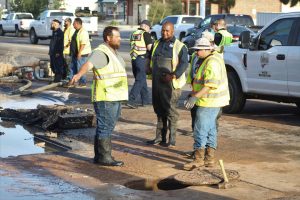
What made this break particularly bad was the size of the waterline and it’s proximity to the water plant, Kerr said.
“This is one of our large mains. It’s a transmission line and it feeds directly off of our plant. Our plant is at 42nd and Golder, so very close. It was bleeding so hard that we just could not maintain enough flow to keep the system online,” Kerr said.
Portions of that particular water line are on a priority list, but they’re not the only ones on the list, Kerr said.
“We do have it as a priority on our list, but it’s not the only one. There are numerous areas where we have cast iron lines that are well over 60-70 years of age,” Kerr said.
Kerr asked residents to conserve water when the system is up and running, at least for a few days.
Mayor Javier Joven, Deputy City Manager Phillip Urrutia and Odessa Fire Rescue Chief John Alvarez expressed their appreciation to Midland County and the state for their assistance in dealing with the crisis, but they also praised the hard work of city staff, many of whom have been working nearly 24 hours in the heat.
Earlier in the day, Joven explained that the city’s water system has a series of veins, arteries and capillaries. The water main break affecting Odessa was the result of a major artery breaking.

Joven and high ranking city staff spent the day at a command post that had been set up at the Coliseum as the City dealt with the crisis. Swanner and Matta also spent time at the post as did people from the Texas Commission on Environmental Quality and the Texas Department of Emergency Management.
Countless businesses and public offices across the city shut down Tuesday due to either no water at all or just a trickle. UTPB, City offices, County offices, Odessa College and many restaurants and businesses had signs up declaring their lack of water and closed doors. Ector County Independent School District also cancelled its summer school sessions.
Ector County Judge Debi Hays declared a state of emergency in Ector County at about 11 a.m. Tuesday. The move was intended to free up funding to help with the emergency.
State Rep. Brooks Landgraf said that in addition to the state sending water to Odessa, it was also helping with the repairs on the water line.
The city provided water to Medical Center Hospital and Odessa Regional Medical Center after officials expressed concerns about their “chillers.”
MCH CEO Russell Tippin said early Tuesday that all clinics had closed at MCH and ORMC but that they opened back up in the early afternoon. All surgeries were cancelled at both hospitals.
The Salvation Army office was made available as a cooling center. People were permitted to stay for 30 minutes and have a bottle of water. They were given one when they leave, as well.

Tankers of water were strategically placed around the city in the event of any fires, Urrutia said.
“I’m proud of the community coming together. The City of Midland has been great and actually Midland’s utility crews were with us last night providing assistance,” Urrutia said Tuesday morning. “We have Midland Fire Department providing us help and Ector County is bringing us resources. We’ve notified Andrews County and all of the volunteer firefighters have their tankers ready to go if we need them.”
Alvarez, who has been with the city more than 30 years, said this is the first time he’s seen a city-wide water issue, but this scenario is one of many the city anticipates and prepares for.
“What we call ourselves is all hazards approach. It could be anything, earthquake, active shooter, this mess here. We try to do everything,” Alvarez said.
According to officials, children, seniors, and persons with weakened immune systems are particularly vulnerable to harmful bacteria.
To ensure destruction of all harmful bacteria and other microbes, water for drinking, cooking, and ice making should be boiled and cooled prior to use for drinking water or human consumption purposes. The water should be brought to a vigorous rolling boil and then boiled for two minutes.
Odessa American reporters Kim Smith, Michael Bauer and assistant editor Ruth Campbell contributed to this story.

